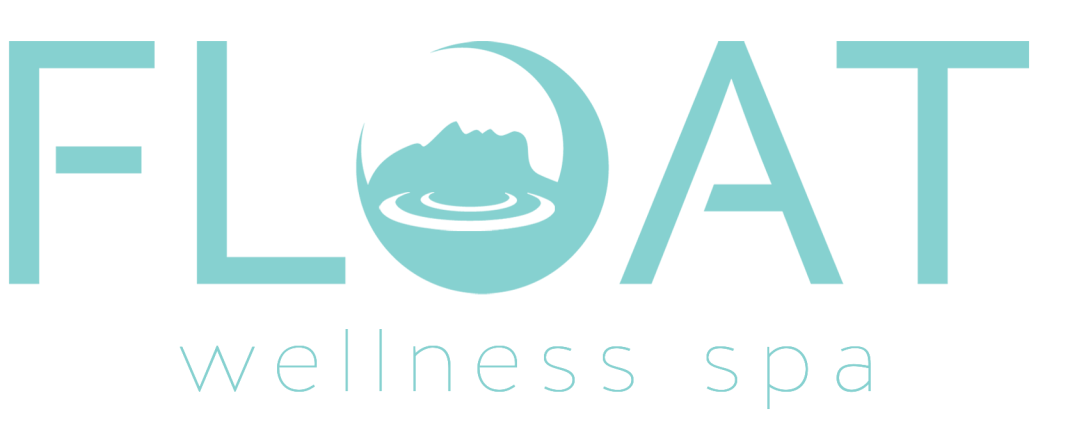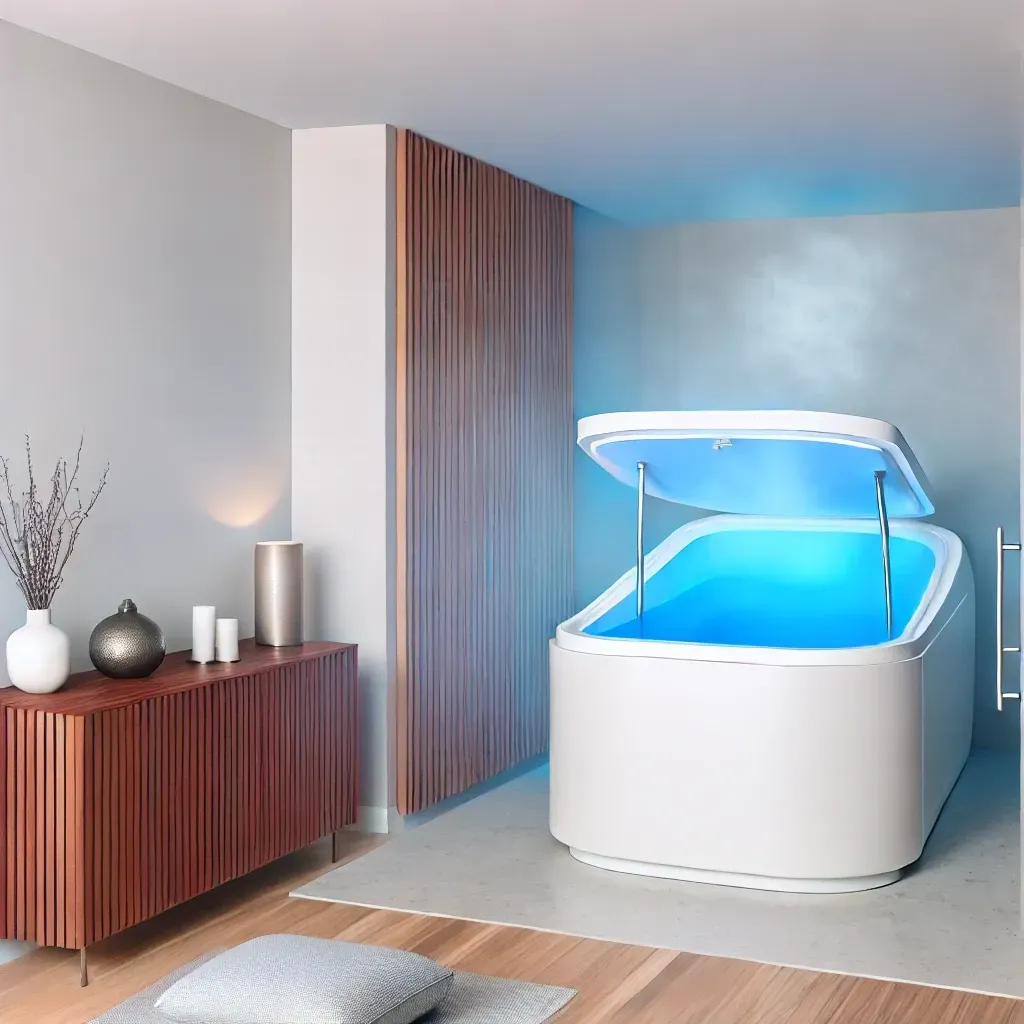Enhancing Sleep Quality with Floating

March 10th-16th is Sleep Awareness Week, a time to highlight the importance of good sleep
health and explore ways to promote better sleep practices for a more energized and fulfilling life.
In recognition, we thought it would be an opportune moment to delve into how floatation therapy
can be one of the more serene and effective approaches to improving your sleep.
How Does Floatation Therapy Impact Sleep?
For those already familiar with floating, you know the profound relaxation that envelops you. But
the impact of floatation therapy on your sleep goes far beyond just this blissful feeling of
tranquility. Floating has the ability to positively impact several crucial elements affecting the
quality of your sleep.
The Slumber-Promoting Powers of Sensory Deprivation
At the core of the float experience is sensory deprivation - that cocooning elimination of external light, sound and tactile input. This is what allows your brain to release its grip on the outside world and turn inward, initiating processes that not only relax you in the moment but purposefully prepare your mind and body for sleep.
By reducing sensory stimulus, floating dials down your sympathetic "fight-or-flight" responses while giving your parasympathetic "rest-and-digest" functions full control. This pivotal shift naturally prompts the release of sleep-promoting neurotransmitters while stress hormones dissipate. Your sleep-wake cycles are effectively re-set, priming you for sustained, high-quality sleep.
A Sanctuary from Stress
Stress is a huge barrier to good sleep. It not only makes it difficult to fall asleep but can also affect the quality of sleep by causing frequent awakenings and lighter sleep stages. Floatation therapy offers a powerful countermeasure to stress by significantly reducing cortisol levels, the body’s primary stress hormone, and promoting a state of deep relaxation. This reduction in stress not only helps in falling asleep more easily but also contributes to a deeper, more restful sleep.
Pain Relief for Better Sleep
For individuals suffering from chronic pain, achieving a good night's sleep can seem like an insurmountable challenge. The weightlessness provided by the buoyant saltwater in float tanks can offer profound relief from physical discomfort, particularly in the back and joints. This relief is not temporary; the effects can last for days after a session, providing a window of opportunity for better quality sleep by minimizing the pain that often disrupts sleep cycles.
Mental Health and Sleep Quality
Anxiety and depression are closely linked with sleep disturbances, creating a cycle that can be difficult to break. Floatation therapy offers a unique environment that promotes mental wellness by facilitating meditation and mindfulness, helping to alleviate the symptoms of anxiety and depression. This mental clarity and calmness can make it easier to fall asleep and maintain a healthy sleep cycle, breaking the cycle of sleep disturbances exacerbated by mental health issues.
Resetting Your Circadian Rhythms
Our sleep-wake cycles are governed by our body's internal circadian rhythms. When these get disrupted by things like jet lag, irregular schedules or exposure to blue light screens before bed it can really impact our sleep quality. Floatation therapy provides a natural way to "reset" these cycles.
The complete removal of external light and sound cues gives your body's clock a fresh slate, while the relaxation allows your circadian rhythms to resynchronize to their optimal patterns.
Many find that a float helps their sleep patterns regulate after periods of disruption, getting them back on a healthy, consistent sleep schedule.
How to Make the Most of Floating’s Sleep Health Benefits
If you’re wanting to fully unlock the sleep-promoting powers of floatation therapy, take a look at these strategies to maximize the rejuvenating benefits:
Optimizing Session Timing
The timing of your floatation therapy sessions can significantly affect their impact on your sleep. For many, floating in the evening, a few hours before bedtime, helps prepare the mind and body for sleep, creating an ideal state of relaxation that leads seamlessly into a night of deep, restorative sleep. However, the optimal timing can vary based on individual circadian rhythms and schedules. Experimenting with different times of the day may help you identify when a float benefits you the most, aligning with your natural sleep-wake cycle for the greatest improvement in sleep quality.
Combining with Sleep Hygiene Practices
To maximize the sleep-enhancing effects of floatation therapy, consider integrating it with established sleep hygiene practices. Creating a pre-sleep routine that includes limiting exposure to screens and bright lights an hour before bed can further signal to your brain that it's time to wind down. Incorporating floatation therapy into your schedule as part of a broader commitment to good sleep hygiene—such as maintaining a consistent sleep schedule and creating a comfortable, conducive sleep environment—can synergize the benefits, leading to even better sleep quality.
Stick With a Routine
Like any lifestyle adjustment, consistency is key when it comes to maximizing the sleep benefits of floating. While a single float can provide great sleep that night, establishing a routine sends stronger signals to your body about adopting new, healthier sleep patterns.
Aim to book floats at the same cadence - whether weekly, bi-weekly or monthly. And try to schedule them around the same time of day each session. This allows your circadian rhythms and sleep-wake cycles to become accustomed to the new normal of restorative sleep prompted by floating. Over time, you're more likely to develop lasting, high-quality sleep habits.
Embrace a Natural Path to Better Sleep
Floatation therapy takes a comprehensive, drug-free approach to improving sleep quality by relieving stress, minimizing pain, promoting mental wellness, and naturally balancing hormones. This Sleep Awareness Week, we encourage you to explore how floating can transform your nights, leaving you energized and ready to embrace each new day. Invest in the luxury of deep, restorative sleep and an overall improved sense of well-being. Book your float session today and prepare to wake up to a new world of quality sleep.

















